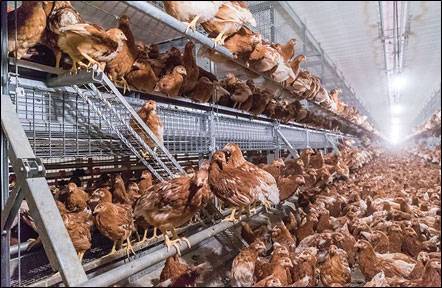
Topics
Go Cage Free? Here’s What the MBAs Said
The U.S. Department of Agriculture (USDA) estimates that there were about 314 million egg producing hens in the United States in 2016, laying approximately 87.4 billion eggs. Only about 23 million of these birds are estimated to be “cage-free”. The USDA’s estimates that in order to meet purchase pledges from all the retailers, foodservice outlets, distributors and food manufacturers making commitments to cage-free eggs, 176.5 million cage-free layers will be required by 2025.
How should restaurant operators meet this challenge? Last week, MBA students from 12 of the top U.S. supply chain management graduate programs visited TCU’s Neeley School of Business to participate in a case study competition focused on the challenges of a multi-concept restaurant corporation transitioning to the use of cage-free eggs at all of its locations. Students had 24 hours to read the case, develop a series of recommendations, and put together a solution.
Most all teams presented some form of a road-map for going cage-free, although at least one team advocated for an alternative, “enhanced system,” offered by the Coalition for Sustainable Egg Supply. Regardless of the chicken housing system recommended, all teams tended to hone in on two of the main challenges: 1) the lack of existing supply in the industry (a true “chicken or egg” problem), and 2) the significant capital investment required for suppliers to convert to cage free environments.
Over 30 industry executives served as judges for the competition. The judges for the final round were an all-star cast from the restaurant industry, including Mark Smith from CSCS, Joe Hinton from Brinker, Bruce Waddell from Michael Foods, Heather Glascock from Kinexo, and Kristi Miller from ARCOP.
Drum roll please……BYU took the top prize at the event, with team members each receiving an iPad and sharing a $7,000 cash prize. A distinguishing feature of their solution was that they did not try to argue that cage free eggs offered any revenue gain opportunities. Instead they argued from the standpoint that this will become a necessary cost of doing business that needs to be shared across partners in the supply chain. Other finalists included Iowa State in 2nd place, U Pittsburgh in 3rd place, and Michigan State finishing in 4th place.